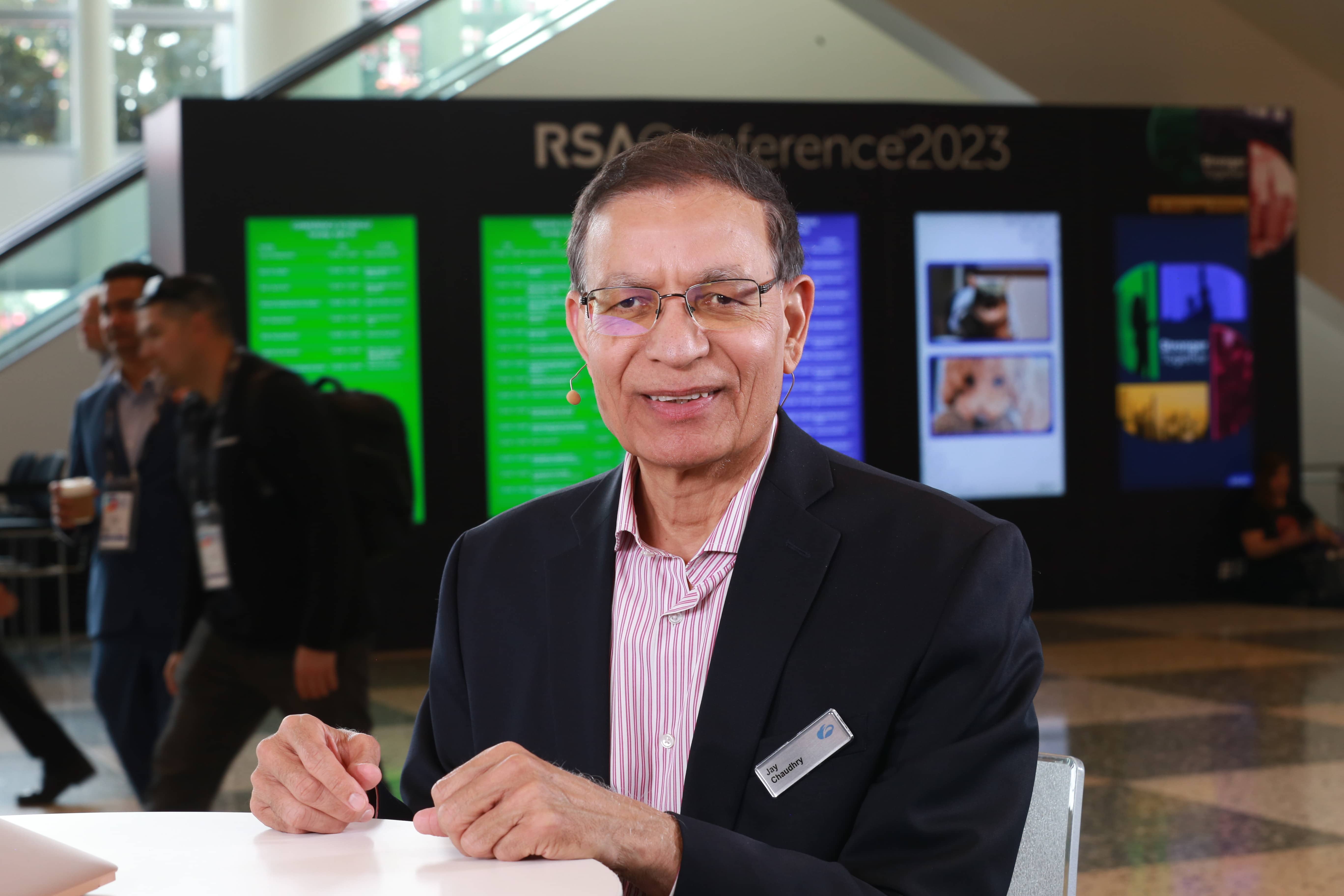 SECURITY
SECURITY
 SECURITY
SECURITY

 SECURITY
SECURITY
Having been founded on the “never trust, always verify” principle, zero trust is no longer a buzzword. It’s top of mind of many chief information security officers.
The complexity created by firewalls and virtual private networks is what’s hurting cybersecurity. It needs simplification with zero trust, according to Jay Chaudhry (pictured), founder, chairman and chief executive officer of Zscaler Inc.
“The notion was if applications and data move to the cloud and we become mobile, all this firewall, VPN-based architecture will be no good … so let’s build a switchboard totally opposite of firewall, opposite of network security,” Chaudhry said. “That was the genesis, the real start which really has evolved into being called zero trust, and that’s really what we are very proud of because Zscaler pioneered this thing very, very early on.”
Chaudhry spoke with theCUBE industry analyst Dave Vellante at the RSA Conference, during an exclusive broadcast on theCUBE, SiliconANGLE Media’s livestreaming studio. They discussed how zero trust is taking the pain points of VPNs and firewalls away. (* Disclosure below.)
Despite spending more and more on cybersecurity every year, the results are still wanting. This is based on the rigidness experienced in the cybersecurity field because the same security and network models have been used since the 1990s, according to Chaudhry.
“They have a lot of money, but inertia is holding them back,” Chaudhry said. “Human beings like to keep on doing what they’ve done. This big change is held back by inertia. It requires people who are progressive or forward thinker, and the vendors don’t help that much.”
Since VPNs do not have restrictions, they are the biggest security threat to enterprises. As a result, zero trust is needed because not only does it connect people to applications, but also supports hybrid models, according to Chaudhry.
“Zero trust didn’t really become popular because of COVID; it became popular when SolarWinds got hit, and then certainly we had Colonial Pipeline, a remote access VPN problem,” he explained. “The biggest risk of ransomware is people getting on the network moving laterally and finding high value target; that’s really what we eliminate. In the world of zero-trust architecture, we very much support hybrid environment.”
Foundation models, such as GPT, will be helpful in threat detection. For instance, they will make finding vulnerabilities easier. Enterprises will need to adopt this technology faster, according to Chaudhry.
“I think GPT is going to shake things up in many ways actually,” he said. “First of all, you can see more sophisticated threats. You can ask ChatGPT, ‘Give me attack surface of this company.’ Here it shows up. It’s also helping companies like us to be ahead to build protection against it. So this GPT is a double-headed sword. It’s going to help; it’s going to hurt. It’s a race with bad guys. We need to move faster.”
With the zero-trust concept ticking, Zscaler serves different Fortune 500 companies, such as BP PLC, Siemens AG, Shell PLC and United Airlines Inc., because it acts as the switchboard. Zscaler’s daily requests highly outweigh those of Google, according to Chaudhry.
“Today, over 40% of Fortune 500 companies depend upon us,” he noted. “Zscaler handles over 300 billion requests through our cloud every day … Google searches in a day add up to about eight or nine billion. When you communicate … to the internet or SaaS applications or your apps in Google Cloud, Azure, AWS data center, they all go through us. We are the switchboard.”
Here’s the complete video interview, part of SiliconANGLE’s and theCUBE’s coverage of the RSA Conference:
(* Disclosure: This is an unsponsored editorial segment. However, theCUBE is a paid media partner for the RSA Conference. Sponsors of theCUBE’s event coverage do not have editorial control over content on theCUBE or SiliconANGLE.)
THANK YOU